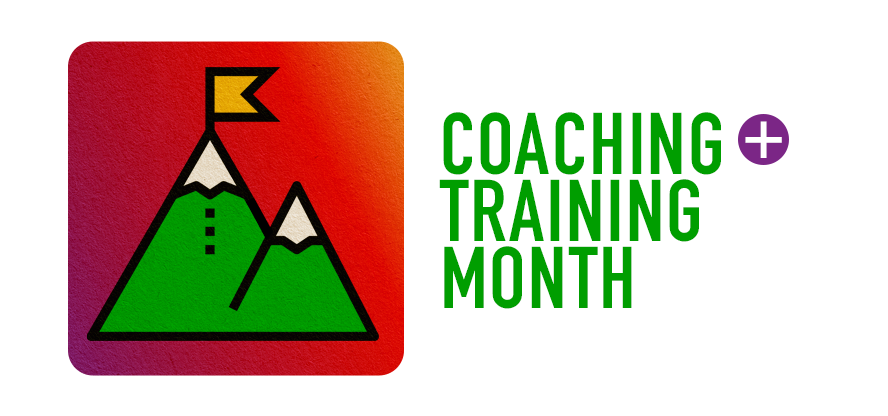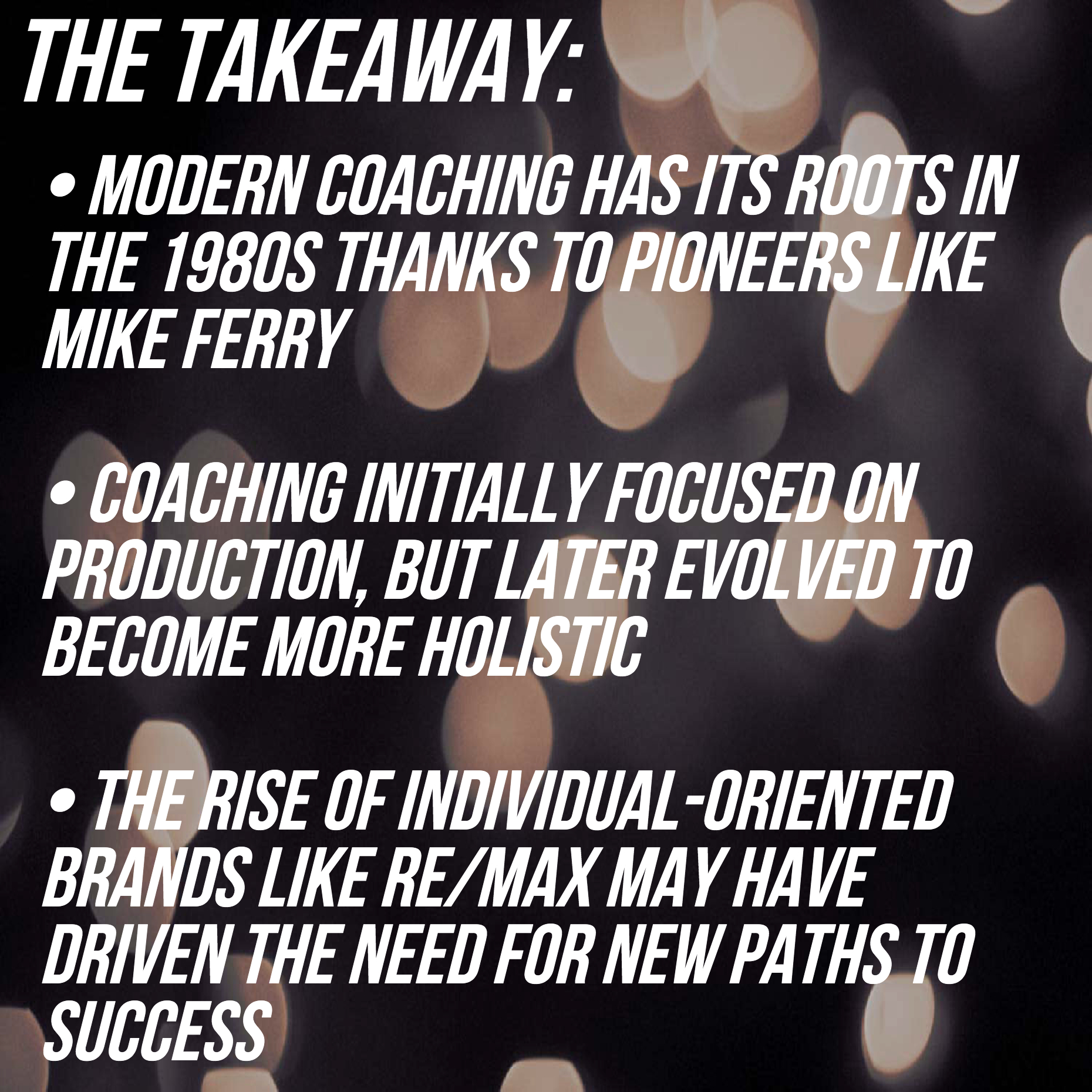 In today’s virtual, work-from-home environment, agents are seeking training and coaching in entirely new ways. In August, we’re laser-focused on what defines good coaching today and how to get the most out of it.
In today’s virtual, work-from-home environment, agents are seeking training and coaching in entirely new ways. In August, we’re laser-focused on what defines good coaching today and how to get the most out of it.
Sherry Chris was looking for a breakthrough.
Chris is well-known in the real estate business as the CEO of multiple Realogy brands, including Better Homes and Gardens Real Estate. She’s a multi-decade veteran of the industry and has racked up numerous awards over the years.
But in 2017, she recently told Inman, she wanted to “do more, be more engaged with my network and with my team members, and just look for new and better ways to do things.”
To help get her where she wanted to go, Chris opted to work with a coach. And it worked.

Sherry Chris
“I had some personal and professional breakthroughs on how I could be a better person and do more,” she said. “It helped me tremendously over a period of several months.”
Chris’ experience involved working with a coach she found internally at Realogy, and the end results weren’t just limited to her career. Among other things, she recalled, the coach helped her “recognize that I have a lot to give back to the industry.” The experience also ended up deepening her involvement with a charity that fights homelessness, to the extent that she ultimately ended up helping build 91 homes in El Salvador.
But regardless of the specific outcomes, Chris’ experience also highlights the fact that in the pantheon of real estate-related businesses, coaching is one of the brightest stars. Though there are an array of training programs and education courses, it’s coaching that has produced quasi celebrities in the industry like Mike Ferry, and which continues to draw praise from influential figures. In Chris’ own words, she’s “a big advocate of coaching.”
To get a better sense of what exactly coaching is and how it influences the industry, Inman reached out to a handful of industry experts, company leaders and coaches themselves. Here’s what they had to say:
Table of Contents
- Understanding what coaching really is
- The origins and evolution of coaching in real estate
- What a coaching experience is actually like
- Coaching isn’t just for newer agents
- Finding the right coach for you
Understanding what coaching really is
To understand coaching, it’s important to grasp what the term itself means. And Chris’ experience is illustrative: She decided to work with a coach because she was looking for a breakthrough, not because she wanted instructions on how to do some particular task.
“Training is often showing you how to do things,” Chris explained. “Coaching is holding people accountable.”
The idea of accountability came up again and again during Inman’s conversations with industry experts. For example, Russ Cofano, the former president and general counsel of eXp Realty, told Inman that coaching is defined as “accountability to a certain desired result.”

Russ Cofano
“There’s education, that’s just learning and knowledge,” he explained. “And then there’s training, or learning how to do something. And then there’s coaching, which is applying what you know to a certain outcome and objective.”
Pinning down a more specific definition can be difficult because, in Cofano’s words, there are a “zillion flavors out there.” But he said that in general coaching often involves a practicing industry professional paying someone else to help them get to a certain objective or goal. Many of those goals are production oriented, with agents turning to coaches, for example, to help double the number of transactions they do. Other times, brokers might hire a coach to help them become better team leaders.
“Most coaching, for seasoned agents, is on some sort of fee-for-service type of scenario,” Cofano explained. “It’s a set fee, and it’s a certain amount of coaching and instruction and resources.”
Cofano described this approach as “transactional” coaching, but added that recent years have also seen a trend toward “transformational” coaching as well. Practitioners in that school of thought tend to be less focused on things like production goals and more on improving overall lifestyles. This is closer to what Chris described doing, and it’s meant to extend beyond just the professional aspects of an agent or broker’s life.
“It’s about helping the student reach another point in their life,” Cofano explained, of which their business is just a piece of that.”
Bryon Ellington, chief operating officer at Century 21, also compared coaching to a personal trainer at the gym.
“What they don’t do is walk you up to the bench press and say this was invented in 1891,” he explained. “They sit you down and they have you actually start doing reps and they correct your form. They’re helping you, not just giving you strategies.”
Whatever flavor of coaching someone choses to pursue though, the main things to keep in mind are that coaching and training are not synonymous, that coaching is about achieving specific goals, and that coaching typically involves some sort of accountability component.

Bonnie Sue Lovelace
And as a result, it tends to require some introspection and self discovery on the part of agent, as well as quite a bit of listening from the coach.
“Coaching is very specific,” Bonnie Sue Lovelace, who oversees learning programs at Realogy, told Inman. “There’s a self-discovery and accountability piece to coaching. There’s a lot more asking, rather than showing.”

Additional resources:
- A comprehensive list of online training classes available to agents
- The 25 best real estate coaches in the business
- What’s the payoff for real estate coaching?
- A coach for every need: 50+ experts for you to choose from
- Starting a coaching program? How to pick the right coach
The origins and evolution of coaching in real estate
Training for real estate agents has been around in some form or another for a very long time. But the coaching industry as it exists today has its roots in the late 1980s and early 1990s when a small group of now-prominent coaches emerged. And Mike Ferry was probably the biggest name among them, according to Bernice Ross, the CEO of RealEstateCoach.com and an Inman contributor.

Bernice Ross
“Mike is the granddaddy of coaching,” she added.
Ferry founded his company in the mid 1970s, and spent the next decade speaking at events and selling recorded training materials. But in the mid 1980s, Ferry began offering a workshop-type service directly to real estate professionals. Eventually, this evolved into what Ferry has described as the “first real estate coaching program.”
Many industry professionals who spoke with Inman characterized Ferry as the pivotal figure in the emergence of the coaching industry, but there were other early entrants as well. Ross said that Brian Buffini was also building his coaching business around that same time, and Amy Stoehr — founder and director of the coaching firm Real Estate Masters Guild — said Joe Stumpf was another early pioneer.
Stoehr, who also previously worked with coaching pioneer Howard Brinton, said a variety of factors contributed to the rise of coaching in the late 1980s and 1990s. For starters, RE/MAX emerged on the scene in the 1970s and began charging agents a desk fee rather than a commission split. A decade later, Keller Williams came along with an education oriented approach.

Amy Stoehr
Stoehr said these moves shifted emphasis in the industry away from companies and toward “individual strengths and accomplishments.” The era of the star agent began, setting the stage for new players like Ferry to “show people a way where you didn’t have to count on the franchise for success.”
“That is what I think spawned the interest in coaching,” she added.
By the late 1990s, coaching was also evolving. Whereas early coaches focused on making agents “mega producers,” Stoehr said, a decade later some of the hardest driving people in the industry began to get burned out. At the same time, technology was making it easier for coaching to take place remotely, and these converging factors gave rise to something closer to today’s coaching landscape — which Stoehr said is more focused on work-life balance and individualized mentoring experiences.
“We’re a much more sensitive society then we used to be,” she added. “We used to admire people who were workaholics and now we criticize them.”
Cofano further explained that the coaching world has continued to evolve over the last decade because the industry has become more competitive and difficult to excel in. With the rise of Zillow, iBuyers, savvier consumers and social media, agents face more complicated and varied paths to success than ever before.
“The explosion of coaching certainly is based on a variety of these macro trends,” he said.

Additional Resources:
- Mike and Tom Ferry on ‘demotivational speaking’ and teaching a philosophy of life
- Daily Dispatch: Brad Inman with Brian Buffini
- Mike Ferry: ‘My job is to create ideas faster than my competition can borrow them’
- Daily Dispatch: Getting coached through this mess by Tom Ferry
- Real estate agent mentor Howard Brinton dies at 72
What a coaching experience is actually like
To better understand what specific coaching experiences are like, Inman reached out to several different leaders in the space. Garratt Frey, founder of Ninja Coaching, was among them and told Inman that his company has about 12 coaches, each of whom tend to work with a target of around 20 people. Clients get paired with a specific coach, and then can choose to have an hour-long phone call each week, once every two weeks, or once every four weeks. Frey said the two-week option is the most popular.
The Ninja program tends to focus on things like removing mental obstacles to success, and encourages users to let their clients lead conversations toward business topics, not the other way around. The idea is to help agents build relationships that might organically evolve into opportunities.

Garrett Frey
“You need to be somebody who is genuinely interested in who people are and what they’re about,” Frey said of the Ninja approach.
Real estate professionals who use Ninja pay either $300 per hour to work with someone who has gone through the company’s vetting process to become a “certified coach,” or $500 to work with a more experienced “master coach.” But Frey said there are no contracts so users can come and go from the service as they please.
Tim Harris takes a different approach. He and his wife run Tim and Julie Harris Real Estate Coaching, which also has about a dozen coaches. However, in the Harrises’ case, they offer what Tim described as “a daily, semi-private coaching call,” in which agents can tune in and ask questions of the company’s experts. The firm also holds a daily Facebook Live webinar, that connects agents in a group setting to coaches.

Tim and Julie Harris
The company’s clients can tune into as many or as few of these sessions as they like. Tim Harris said that the company is currently working with thousands of real estate professionals, and that there are typically a couple hundred who dial into the sessions on any given day. But either way, he touted the company’s daily activity as one of the things that sets it apart from other coaching services.
The program comes in a free version, which gives users access to about 10 percent of the company’s coaching content. For those who want more assistance, the basic program costs $3,000 for six months, though it includes an additional six months for free.
Chris said the majority of the coaching that goes on in the real estate industry involves third party providers. But the big companies also typically offer their own versions, which in some cases are included with the various fees agents pay to their brokerages.
For example Ellington — who has previously led learning programs at both Realogy and Keller Williams — said Century 21 offers a variety of training services, including a coaching program called Accelerate. The program is a four-week course in which Century 21 agents meet in a classroom-like setting twice each week.

Bryon Ellington
“You’re going to show up, and we’re going to talk about your goals,” Ellington said.
The sessions can take place in person or, as is more common during the coronavirus pandemic, virtually. Local brokers and Century 21’s dedicated coaches lead the sessions, and in between meetings agents input their progress into the company’s technology platform, which Ellington said provides accountability.
Accelerate is free for Century 21 agents, and Ellington said it has a proven track record of getting agents more transaction sides.
Keller Williams also deserves a mention here, as it came up repeatedly in conversations for this story as a company that places a particular emphasis on training and coaching. The company has a program it calls the “Mega Achievement Productivity Systems,” or MAPS, which includes everything from one-on-one training to conferences and workshops.
Among other things, the MAPS program includes “Business Objective: A Life By Design,” or BOLD, which is a multi-week course that gives agents “powerful mindset exercises, language techniques, business-building strategies and live lead generation activities,” according to information the company provided to Inman.
A new virtual version of BOLD, called BOLD Pivot, debuted in May after being reengineered for the pandemic, and drew more than 41,000 Keller Williams professionals.

Additional resources:
- Is real estate coaching worth it?
- Tom Ferry launches online training program in response to coronavirus
- Keller Williams pledges $20M to reduce coaching costs for agents
- Realogy totally overhauls agent training program for digital age
- Keller Williams launches industrywide, 4-week education course
Coaching isn’t just for newer agents
Everyone — including Chris, who used a coach after decades in real estate — said that some version of coaching can benefit agents no matter what their experience level is. But the experts who spoke to Inman did say that real estate professionals may want to approach the concept differently depending on where they are in their careers.
Stoehr, a coach herself, said that newer agents might find more structured programs more beneficial. Then after getting the basics down, they may want more customized offerings.
“Once people reach a point that they realize they can’t do it all themselves, that’s typically when they go looking for a coach,” she said.
Ellington made a similar point.
“For newer agents, I typically recommend great training programs that have accountability as part of them,” he said. “Those types of programs are really great for newer and less experienced agents.”
He added that agents typically benefit more from one-on-one coaching as they start to do more transactions and are looking for “breakthroughs.”

Additional resources:
- Coaching program for agent assistants set to launch
- 3 ways coaching can help you be a better agent
- 7 things you must do after getting your real estate license
- 21 ways to generate more real estate leads
Finding the right coach for you
Chris found her most recent coach through her employer, Realogy. But she said many “agents as independent contractors really feel comfortable going outside their brokerage and their brand to find a coach.” And as a result, agents need to be smart when it comes to vetting the people they’ll work with.
“You want to interview coaches,” she advised.
Among other things, Chris also specifically recommended agents look at the track record of potential coaches. They should have a proven ability to help agents achieve their goals, and the coaches themselves should be able to furnish information demonstrating their record.
Chris further advised agents to look specifically at the return on their investment.
“Let’s say a top producing agent team was paying $10,000 a year for a coach,” Chris said. “Really what they should be looking for, and this is my own personal guideline, I’m looking for a 10x return. So if you’re spending $10,000 for a coach, that coach should be helping you achieve $100,000 in income.”
Chris and other experts who spoke with Inman also pointed to a number of less concrete variables real estate professionals should consider when vetting coaches. Frey, for example, said that sometimes people find a coaching philosophy that works but end up paired with the wrong specific person. His point was that agents should consider both the coaching infrastructure they’ll be engaging with, as well as the personality of the coaches themselves.
“You need to find a coach that you’re super excited about,” he said.
Chris made a similar point.
“You want to find a coach you have a strong connection with,” she explained.
In Harris’ case, his company’s website provides a lengthy list of questions prospective coaching clients can use to pin down their options. Harris described the questions as fairly basic, but they do highlight important considerations such as a coach’s qualifications, contractual obligations in the relationship, payment and other things. But making a choice can still be challenging.
“The biggest problem with coaching is that agents don’t know how to choose,” Harris said.
Either way, though, the experts who spoke with Inman generally agreed that there’s a coach out there somewhere for just about every real estate professional.
“Take a look around at the most successful agents in this business,” Ellington said. “I would say the vast majority have coaches or have had coaches at some point in their career. And that’s telling. It’s telling about what it takes to succeed at the highest levels.”

Additional resources:













